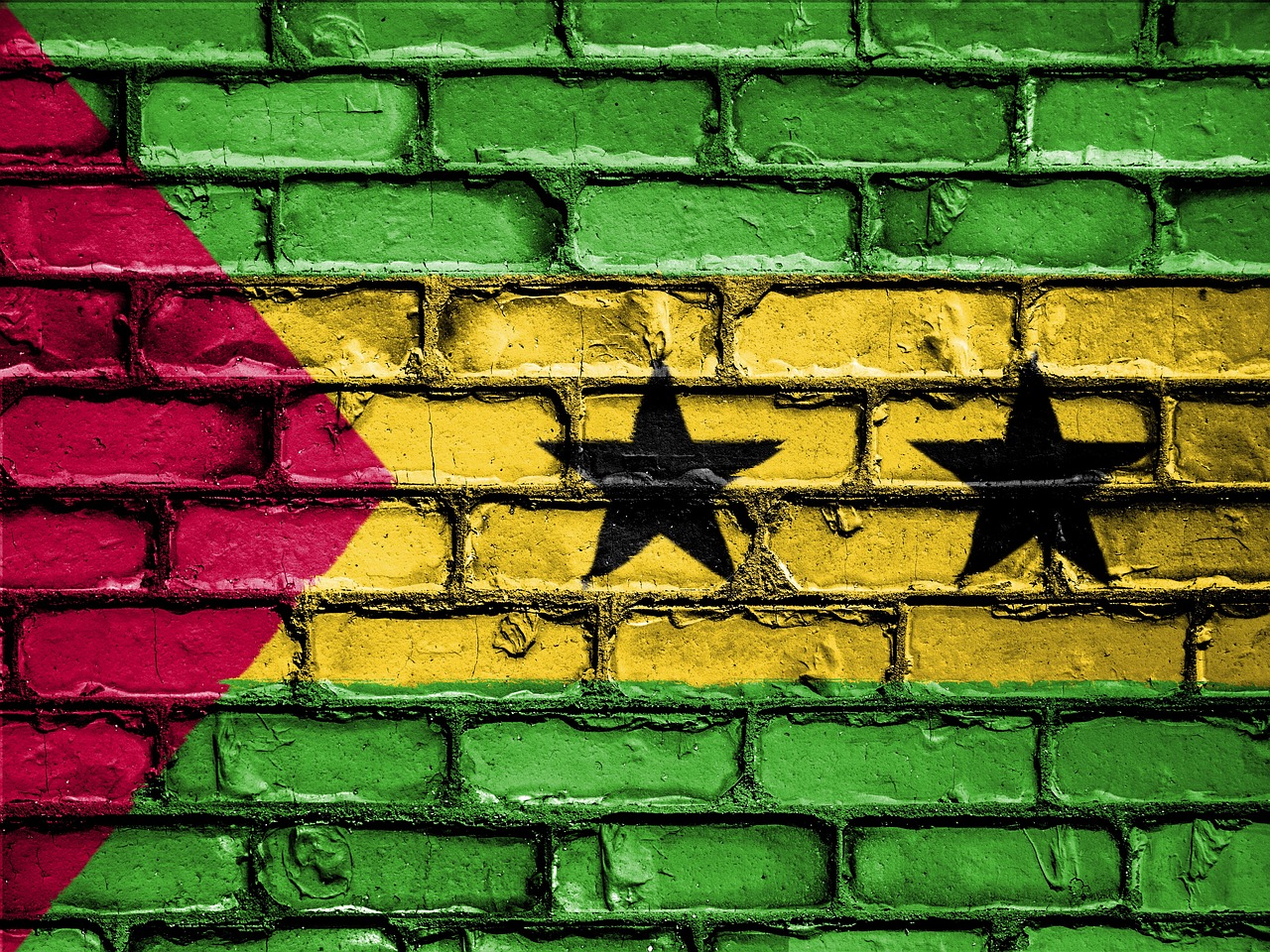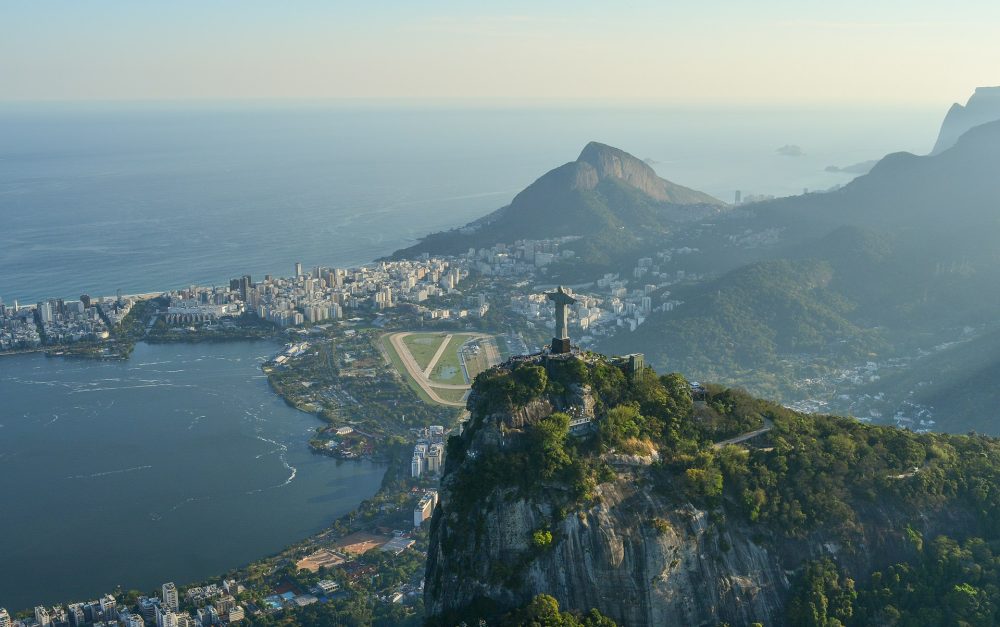Africa
Sao Tomean PM Says the Country Will Transition to Middle-Income by 2024
The São Tomé prime minister said today that he believes that the country will transition to the middle-income category in December 2024, despite the difficulties, asking for vision, ambition and everyone’s involvement to transform the archipelago. The UN representative in Sao Tome and Príncipe noted that in the last 10 years, the GDP of São Tomé and Príncipe has doubled in the last 10 years.

“I am convinced that, despite our difficulties, we are in a much better condition than other less advanced countries to really make the transition, it is really necessary that the San Tomeans take ownership of São Tomé and Príncipe, have that self-esteem, that pride, not only of being San Tomean, but of stopping being, one day, a less developed country,” said Patrice Trovada in statements to the San Tomean newspaper ‘Téla Nón’, in Doha, Qatar.
Read more on the subject and find the latest economic news from around the world with the Born2Invest mobile app.
The prime minister was aware of the decrease in donations after the transition to a middle-income country
The São Tomense Prime Minister, who participated in the 5th United Nations conference on least developed countries, considered that “it is necessary to have vision” and “to have ambition”, and called for the involvement of the São Tomense people to accelerate the “development process” and transform the country.
“We can’t also always be lamenting that we are poor and we have to hold out our hands. We have to work, we have to believe, we have to be much more united, and I believe that in December 2024, if we set this goal, we will be in conditions to be admissible to a middle-income country”, declared Patrice Trovoada.
The prime minister was aware of the decrease in donations after the transition to a middle-income country but stressed that the country should work for a better application of the credits that will be more available.
“Direct investment through credit that must also be at acceptable interest rates, that is the big question, not the donation”, he underlined.
For Patrice Trovoada, corruption and the price of the Internet are some of the obstacles that less developed countries still have to face
“We cannot give up digitalization, the new technologies, and the digital infrastructure, because this is part of our sovereignty and the states of the less advanced countries have to have a “bigger hand” in this because otherwise, we will lose this new revolution,” he commented.
In the specific case of Sao Tome and Principe, the head of the government considered that one of the “big problems” that condition the country’s development process is the energy issue, which represents an accumulated debt of about 250 million euros, generated by credits in the supply of fuel by the National Fuel and Oil Company (Enco), majority owned by the Angolan company Sonangol, to the Water and Electricity Company (Emae) of Sao Tome and Principe.
“The most important fact of our debt is mainly energy […] that alone represents almost 100% of the GDP [Gross Domestic Product]. This is a structural fact”, declared Patrice Trovoada, emphasizing that the country has “support from the international community” and should make reforms to overcome this issue.
The Prime Minister considered that it is “an issue that can be overcome” with the support of the international community and the internal effort to improve energy management and invest in renewable energies.
Another challenge presented by the Prime Minister of São Tomé is food security.
“With such a fertile country one cannot think that it is not possible to achieve food security,” he said, defending new policies for the sector, namely the acquisition of new seeds for cultivation and improvement of the irrigation process, as well as exports to the countries of that African sub-region.
“The African free market is a reality. We have to improve the connection with the continent. We are always talking that we have a market of 400 million consumers so close, it is a reality. We have to look to our neighbors, and seek solutions at a regional level,” Patrice Trovoada stressed.
The prime minister also wants advances in the fishing sector, which is currently dominated by foreign vessels under agreements signed with the São Tomense State.
“Until today, besides the fishing licenses, we don’t even have a fishing policy that is at least semi-industrial, and this issue of progressive industrialization is fundamental,” argued the leader of the São Toméan executive.
To boost tourism, Patrice Trovoada believes that it is necessary to “work on air connectivity”, taking into account the increase in travel prices, especially to Europe, after the covid-19 pandemic, and explore “the tourism potential at the regional level” and at the same time prepare the São Tomense population to receive tourists.
The United Nations resident coordinator in Sao Tome and Principe, Eric Overvest, assured that the transition of the archipelago to a middle-income country does not mean the immediate cut of international development aid.
“It doesn’t mean that as of 2024 official development assistance will be cut. It is a transition process that will take 5 years”, stressed Eric Overvest to the newspaper ‘Téla Nón’, on the sidelines of the same conference.
The UN system coordinator said that the decision was taken by the UN General Assembly and was approved based on the country’s development indicators, “especially the GDP per capita, and the economic and social indicators”.
The UN representative in Sao Tome and Principe pointed out that in the last 10 years, Sao Tome’s GDP has doubled, “and the country is in the group of middle-income countries”
The indicators analyzed by the UN General Assembly indicate that Sao Tome and Principe register a GDP per inhabitant of $2,300 (about 2,150 euros) when the maximum international reference ceiling is $1,200 (1,120 euros).
In addition, the life expectancy of São Toméans has increased and progress has been made in the education sector, where access to secondary education, reaches almost 100% of children.
__
(Featured image by David_Peterson via Pixabay)
DISCLAIMER: This article was written by a third party contributor and does not reflect the opinion of Born2Invest, its management, staff or its associates. Please review our disclaimer for more information.
This article may include forward-looking statements. These forward-looking statements generally are identified by the words “believe,” “project,” “estimate,” “become,” “plan,” “will,” and similar expressions. These forward-looking statements involve known and unknown risks as well as uncertainties, including those discussed in the following cautionary statements and elsewhere in this article and on this site. Although the Company may believe that its expectations are based on reasonable assumptions, the actual results that the Company may achieve may differ materially from any forward-looking statements, which reflect the opinions of the management of the Company only as of the date hereof. Additionally, please make sure to read these important disclosures.
First published in Africa 21 Digital, a third-party contributor translated and adapted the article from the original. In case of discrepancy, the original will prevail.
Although we made reasonable efforts to provide accurate translations, some parts may be incorrect. Born2Invest assumes no responsibility for errors, omissions or ambiguities in the translations provided on this website. Any person or entity relying on translated content does so at their own risk. Born2Invest is not responsible for losses caused by such reliance on the accuracy or reliability of translated information. If you wish to report an error or inaccuracy in the translation, we encourage you to contact us.

-

 Africa7 days ago
Africa7 days agoMorocco’s Wheat Dependency Persists Despite Improved Harvest
-

 Crypto2 weeks ago
Crypto2 weeks agoBrazil’s Crypto Boom Threatened by Surprise Tax Proposal
-

 Biotech2 days ago
Biotech2 days agoEcnoglutide Shows Promise as Next-Generation Obesity Treatment
-

 Markets1 week ago
Markets1 week agoCocoa Prices Drop Amid Speculative Selling and West African Supply Concerns















